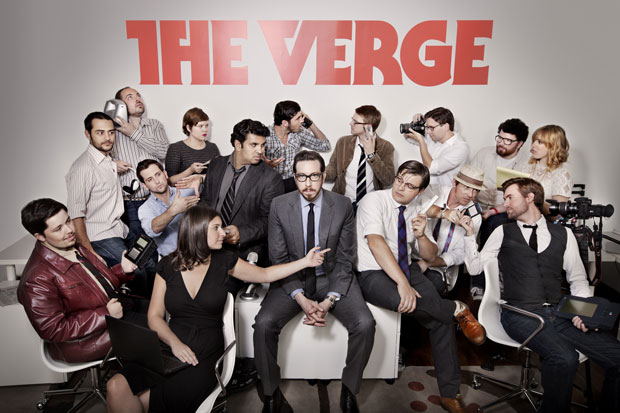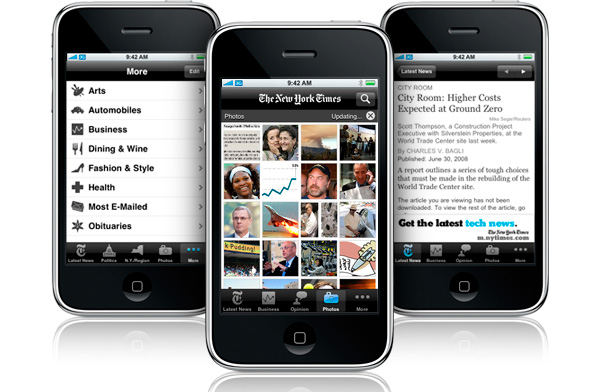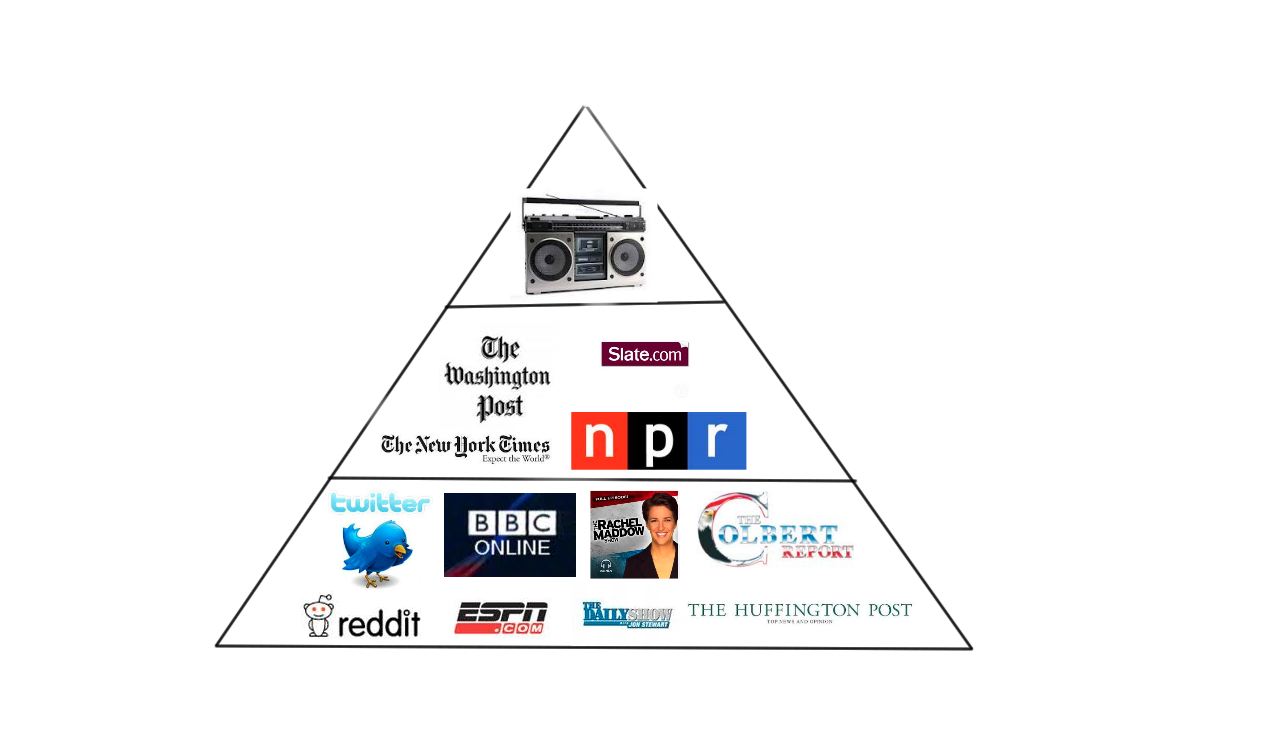Chapter Three: “Journalism Next”
February 7, 2012
The beauty of the Internet is that anyone can use it. You can both consume and create, constantly raising the bar that pushes the standard to a higher level.
Crowdsourcing online basically means a number of people all contributing to keep an article updated and accurate. The best example of this is Wikipedia. Articles can be updated and edited by anyone with an Internet connection and it’s accuracy is pretty remakrable considering the circumstances. But they also have a team that fact checks the articles which is really quite the team effort in my humble opinion.
Briggs mentions Jeff Howe a lot in the chapter so here’s a video from the man himself on crowdsourcing:
A good point that Briggs makes in “Journalism Next” is that crowdsourcing gives people a chance to contribue to their community. All tips and news submitted may not always be the most accurate but someone usually comes through.
The best defintion of open-source reporting be found in “Journalism Next.”
The term “open-source” refers to design, development and distribution “offering practical accessibility to a product’s source (goods and knowledge).” Applying this concept to journalism means using transparency in reporting in order to provide benefit to your audience and possibly acquire benefits from your audience.
All in all, writing on the Internet is like a group project. Some people contribute and do most of the work while others do the bare minimum and stick their names on it anyway.
The Verge: Social media harder to resist than cigarettes
February 6, 2012
In this The Verge article, people are more likely to check their smartphone than they are likely to give in to a cigarette break according to a study from the University of Chicago Booth School of Business (say that five times fast).
I do not smoke or drink (ok, rarely drink) so I can’t say for myself if this applies to me but considering my addiction to social media and my phone, it probably is. The fact of the matter is that checking your email is so easy and quick, a swipe here, a touch there and you’re done. I personally also get instant gratification after I’ve checked my Twitter or email. I feel caught up within a minute and I can move on. The problem is for me, is that I do this often. So it might only take a minute, but I do it many times throughout the day. Also, it’s healthier.
The Verge
February 5, 2012
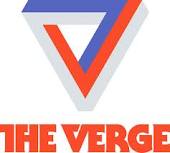 The tech website I’ve decided to follow is The Verge. It is a website founded by Joshua Topolsky who used to the the editor-in-chief at popular tech news website Engadget.
The tech website I’ve decided to follow is The Verge. It is a website founded by Joshua Topolsky who used to the the editor-in-chief at popular tech news website Engadget.
What I like about this site is that there is a collection of tech news–the newest rumors, product reviews, articles about different gadgets, web shows, podcasts and so much more. It also has a really cool layout that it is easy to navigate through. Read the rest of this entry »
Winter is coming
February 2, 2012
Chapter two: “Journalism Next”
February 2, 2012
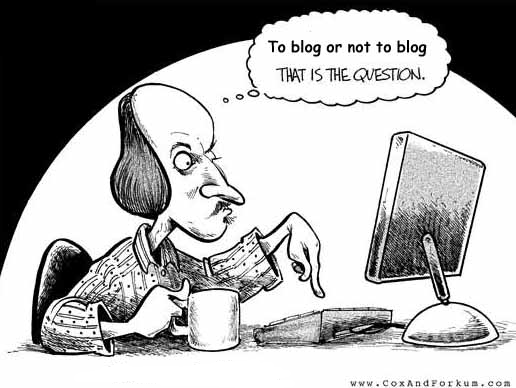 Chapter two moves on from how to write HTML to the bonuses of blogging. Now blogging, that is way more up my alley. I read blogs daily and although I’ve only kept up a blog for school, but will most likely start keeping one up personally.
Chapter two moves on from how to write HTML to the bonuses of blogging. Now blogging, that is way more up my alley. I read blogs daily and although I’ve only kept up a blog for school, but will most likely start keeping one up personally.
Briggs writes about how having a blog gets your name out there and uses westseattleblog.com as an example. What I personally love about blogging is the ease. Sign up for a Tumblr account, WordPress, Blogger, Posterous…the list goes on and on. No, seriously, it does. Here is a list of 40 free ones.
But what fun is a blog if no one reads it?
Briggs gives three great tips to help build an audience for your blog:
- Regularly publish high-quality posts
- Write effective headlines
- Participate in the community
Some other tips that I can give is to also effectively tag your posts so when someone Googles something you wrote about, your blog will come up. Also, link your blog to your Twitter and Facebook so that way people on Twitter, even those who don’t follow you, will see it and your friends maybe out of sympathy will look it because no one else is. Don’t be ashamed!
Now blog away.
Chapter One: “Journalism Next”
February 2, 2012
While the introduction reaffirmed the idea that journalism is changing at the same rate as technology, chapter one reaffirmed that I have absolutely no knowledge of HTML and the inside workings of the Internet.
The web programming language known as HTML is as foreign to me as Chinese. The tips Briggs has in his book are basic and introductory to those not familiar with writing HTML. I took an IT class and had to write the most basic of code for a project. The mere fact that it opened and worked was a miracle in and of its self. It wasn’t until this class that I realized how complicated it can be, one wrong move and everything, all the hard work, is completely thrown off.
But the complexity of writing code and understanding HTML is besides the point. The fact of the matter is that knowing and understanding HTML not only makes you a more advanced Internet user but a journalist as well. It will not only make your work more accessible because you’re making it easier for other but it will also help you keep up with the other changing technology.
But chapter one isn’t just about how to write code. The importance of an RSS feed is also emphasized. RSS stands for “really simple syndication.” It’s a great and simple tool to keep up with your favorite blogs in one place. I personally use Google Reader since I use a lot of Google applications and am already familiar with the platform. Here is a picture from my own personal feed:
As you can see, I haven’t gone through the most recent ones yet and there are some I skip all together but the beauty of an RSS feed as that you can customize it as you like and read whatever appeals to you the most.
Introduction: “Journalism Next”
February 1, 2012
The introduction of “Journalism Next” by Mark Briggs simply puts that the state of journalism has not only just changed from the past few decades, but that it will continue to change constantly.
As a product of the 90s, my world of journalism as I’ve gotten older saw the end of print of journalism as it was and its transition to the online world. When I properly started to pay attention to the news and keep up with the world, it was done through television and online newspapers and blogs. Now my news intake is almost exclusively only online, from my phone to my laptop to the television, I can assure my news comes from a screen.
Journalism is on a great new path, anyone with an Internet connection can be a writer giving people the opportunity to get their work out their without having their names on a New York Times byline.
“While journalism isn’t the only industry caught in the middle of a massive upheaval, I would argue it’s an industry that stands a great chance of making it to the other side and dramatically improving along the way,” wrote Briggs. I couldn’t have put it better myself.
Game of Thrones
February 1, 2012
<script src=”http://storify.com/SarahElHage1/game-of-thrones.js”></script><noscript>[<a href=”http://storify.com/SarahElHage1/game-of-thrones” target=”_blank”>View the story “Game of Thrones!” on Storify</a>]</noscript>
Like my status
January 31, 2012
Not quite the same as page clicks but it’s the equivalent for college students who live their lives via Facebook status updates. The point is is that our generation is defined by how successful we are online–how many friends we have on Facebook, how many people follow us on Twitter, how many page clicks and followers our blogs have.
In this article by Joel Achenbach, he writes about the slow decline of the newspaper industry and the rapid rise of news on the Internet. It used to be circulation but now the go to statistic for success is the highly faulty and shady number provided by page clicks. I have to agree with everything he says.
The fact of the matter is that we live in a mobile, on the go world. There are so many platforms that throw information our way and as consumers of this information we ahve to be picky about what we choose to read. We can see an article in the newspaper or maybe hear about it but why pick up the paper when you can go online and see the additional maps, photographs, links, videos and other data?
It’s also about convenience. Taking your phone out of your pocket and reading an article on your commute to article is much easier than digging out your newspaper and finding the right page and then folding it perfectly. No need to continue to page A6. Just swipe. Don’t have to read it? Instapaper.
Media Pyramid
January 25, 2012
Maybe it’s just me, but I think everyone has their own media intake routine. Here’s mine in a media pyramid form
With the exception of The Colbert Report, The Daily Show and The Rachel Maddow Show, the main media I use is all online. Twitter allows me to cover a lot of news by following the bigger news names like CNN, The Washington Post, The New York Times, ESPN and more. What I like to do is read through my timeline and the stories I like to read, I save to Instapaper to read later online on my laptop for comfort or sometimes right there on my phone.
Reddit is a huge place where I get my news. The links are all provided by users and the most popular ones are voted to the top but sift through a few pages and you’ll find a number of articles that I wouldn’t usually see.
I put radio on the top because I rarely if ever listen to the radio anymore. The NPR image in the middle is definitely more for the website than the actual station.

